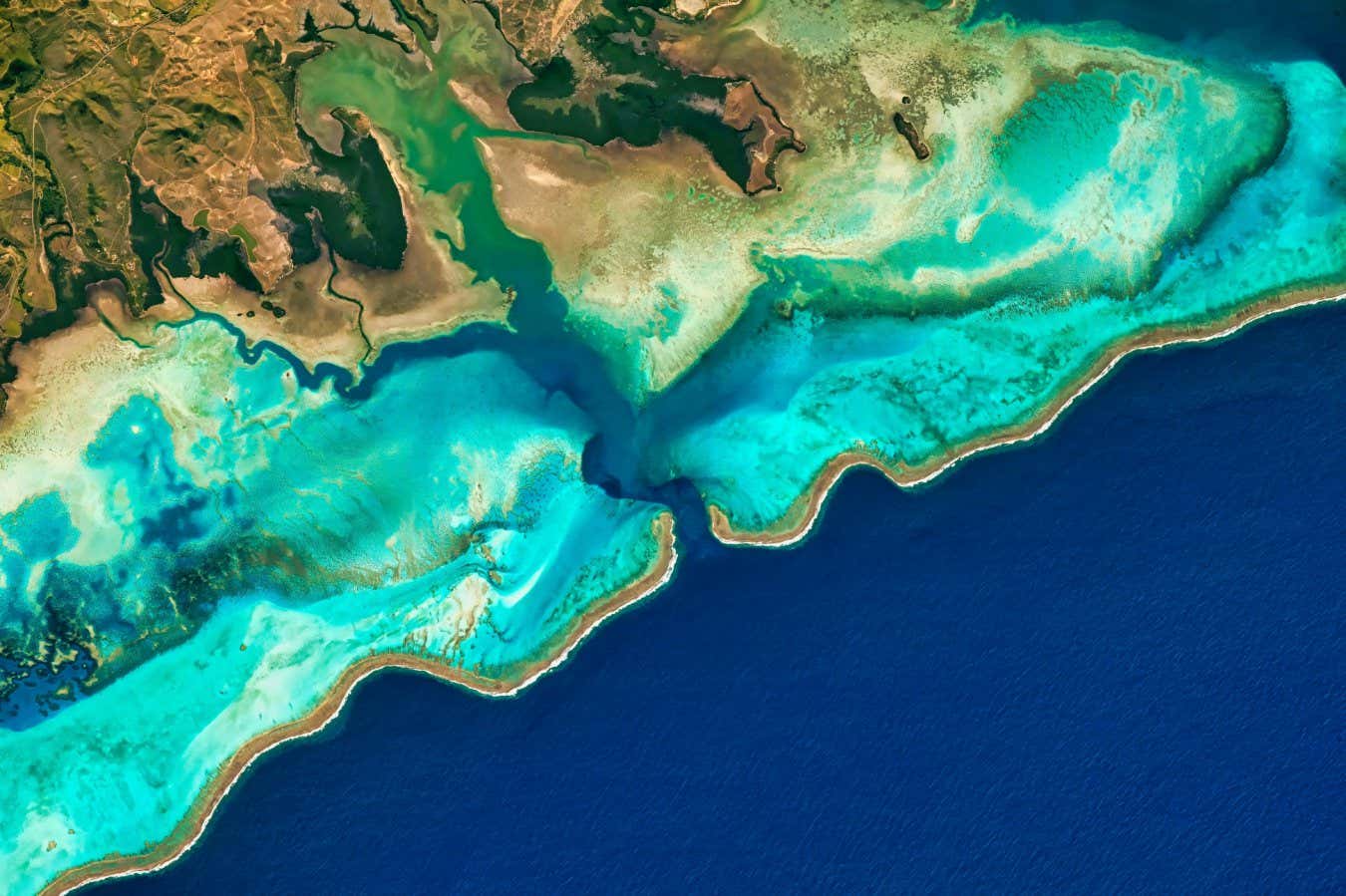As warmer waters and ocean acidification reduce coral formation, the seas will take up more carbon dioxide – an effect that hasn’t been included in climate models
By Michael Le Page
2 June 2025
Satellite view of coral reefs in New Caledonia
Shutterstock/BEST-BACKGROUNDS
There might be an upside to the loss of coral reefs. Their decline would mean oceans can absorb up to 5 per cent more carbon dioxide by 2100, researchers estimate, slowing the build up of this greenhouse gas in Earth’s atmosphere.
“It is a beneficial effect if you only care about the concentration of CO2 in the atmosphere,” says Lester Kwiatkowski at Sorbonne University in Paris, France. But the decline of corals will also reduce biodiversity, harm fisheries and leave many coasts more exposed to rising seas, he says.
Read more
The ocean is losing its ability to store heat as the planet warms up
Advertisement
How much the world will warm depends mainly on the level of CO2 in the atmosphere. So far the land and oceans have been soaking up around half of the extra CO2 we have emitted. Any factors that increase or decrease these so-called land or ocean carbon sinks could therefore have a significant impact on future warming.
It is often assumed that corals remove CO2 from seawater as they grow their calcium carbonate skeletons. In fact, the process, also known as calcification, is a net source of CO2.
“You’re taking inorganic carbon in the ocean, generally in the form of carbonate and bicarbonate ions, turning it into calcium carbonate and that process releases CO2 into the seawater, some of which will be lost to the atmosphere,” says Kwiatkowski.
